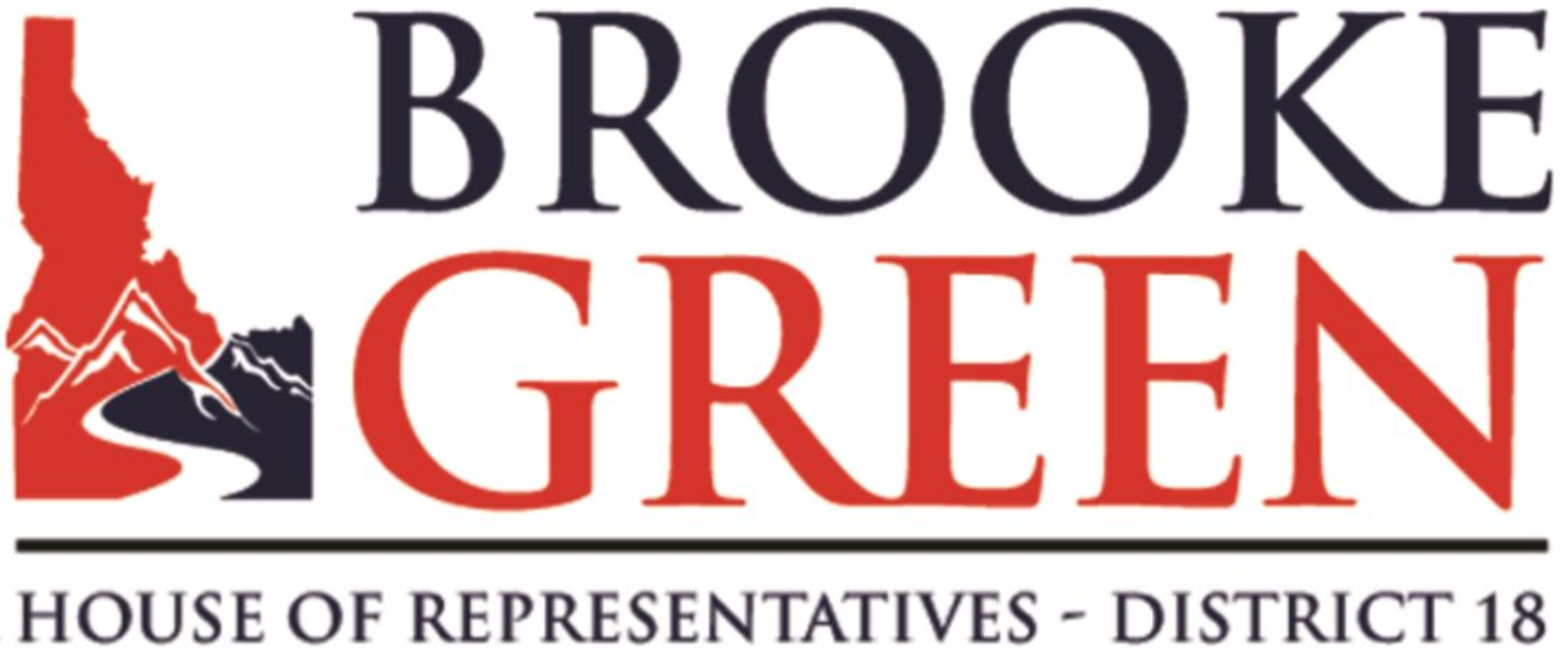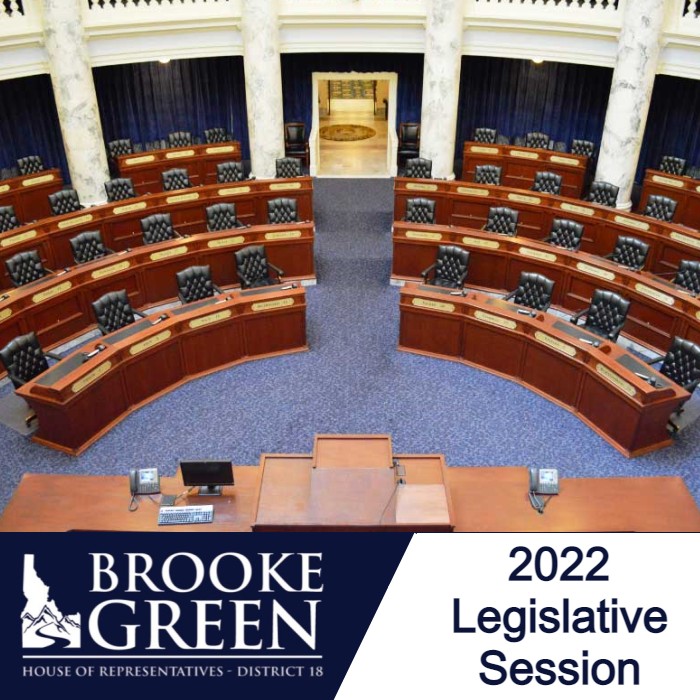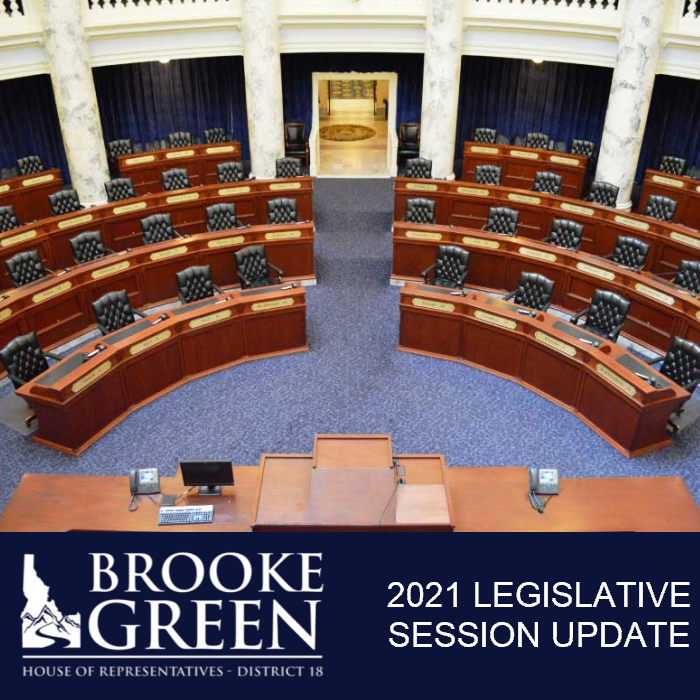Thank you for your continued support throughout the last year and into the current legislative session. This past summer I was busy working with the Behavioral Health Council and will now direct that attention to ensuring the policy suggestions from the council are followed through at the statehouse. I am currently tracking eight bills related to mental health such as the funding of the Crisis and Suicide Prevention Line, a number of behavioral health clinics and support centers for both adults and youth, as well as ARPA (American Rescue Plan Act of 2021) grant funding bills. I couldn’t be more thrilled with these recommendations to increase funding and create better policies to support mental health programs. Along with mental health resources, I have been working closely with the Idaho Cybersecurity Task Force to ensure policies are meeting the critical needs of Cybersecurity infrastructure in the State of Idaho.
Tax Bill
During week two of the session, the legislature passed the largest tax cut in state history. This bill, among other things, would change the income tax brackets. It includes a $600 million tax cut with $350 million of that going to a one-time rebate, giving out one-time checks to individuals. The remainder of the money will be delegated to a permanent tax cut, most notably, the reduction of the corporate tax rate from 6.5% to 6%. The passage of this bill comes full force at the beginning of the session, before any meaningful budget, education, or infrastructure bills have been taken care of. While I am not opposed to tax relief, I find an issue that we removed $600 million off the top before we tackled critical infrastructure needs, such as schools, roads, civic facilities, and more. Ideally, we would have used these dollars to address the millions of school levy’s that are showing up year after year.
Most in the body agree, there should be meaningful property and grocery tax relief. However, this removes $600 million of the projected $1.9 billion of the surplus off the table in the first two weeks of the session, potentially diminishing the chances of other tax relief plans.
View this email in your browser
Hello <>,
Thank you for your continued support throughout the last year and into the current legislative session. This past summer I was busy working with the Behavioral Health Council and will now direct that attention to ensuring the policy suggestions from the council are followed through at the statehouse. I am currently tracking eight bills related to mental health such as the funding of the Crisis and Suicide Prevention Line, a number of behavioral health clinics and support centers for both adults and youth, as well as ARPA (American Rescue Plan Act of 2021) grant funding bills. I couldn’t be more thrilled with these recommendations to increase funding and create better policies to support mental health programs. Along with mental health resources, I have been working closely with the Idaho Cybersecurity Task Force to ensure policies are meeting the critical needs of Cybersecurity infrastructure in the State of Idaho.
Tax Bill
During week two of the session, the legislature passed the largest tax cut in state history. This bill, among other things, would change the income tax brackets. It includes a $600 million tax cut with $350 million of that going to a one-time rebate, giving out one-time checks to individuals. The remainder of the money will be delegated to a permanent tax cut, most notably, the reduction of the corporate tax rate from 6.5% to 6%. The passage of this bill comes full force at the beginning of the session, before any meaningful budget, education, or infrastructure bills have been taken care of. While I am not opposed to tax relief, I find an issue that we removed $600 million off the top before we tackled critical infrastructure needs, such as schools, roads, civic facilities, and more. Ideally, we would have used these dollars to address the millions of school levy’s that are showing up year after year.
Most in the body agree, there should be meaningful property and grocery tax relief. However, this removes $600 million of the projected $1.9 billion of the surplus off the table in the first two weeks of the session, potentially diminishing the chances of other tax relief plans.
HCR 29- Adverse Childhood Experiences
In the upcoming weeks, I will be introducing multiple pieces of legislation. One of which, HCR 29, I sponsored on the floor is a resolution that encourages state officers, agencies, and employers to promote interventions for those who have suffered from adverse childhood experiences or other severe emotional trauma. This would help to create resilience in survivors of childhood trauma, and promote evidence-based interventions and practices for them. This resolution was unanimously supported by the Idaho Behavioral Council. This bipartisan bill passed the House and is on the way to the Senate.
HCR 27- Education Standards
This bill seeks to reject the current math, science, and English/language arts standards but does not intend to replace them with any other standards. The sponsor says it is meant to work in conjunction with H 427 which replaces those standards, if passed, it will go into effect in 2024.
HB433-Teacher Insurance-On the way to Governor for Signature
In a win for education, the House voted in favor of allowing school districts the option to opt into the state of Idaho healthcare plan. HB433 passed with 55 in favor, 14 against and 1 absent. This is a step in the right direction at solving some of the dire issues that are plaguing our teachers. This puts more money in their take-home paychecks and ensures that we are retaining teachers in school districts throughout the state. The logistics of this legislation allow for school districts to decide their best method of providing health insurance for their teachers and classified employees, this just factors in another available, affordable, plan.



